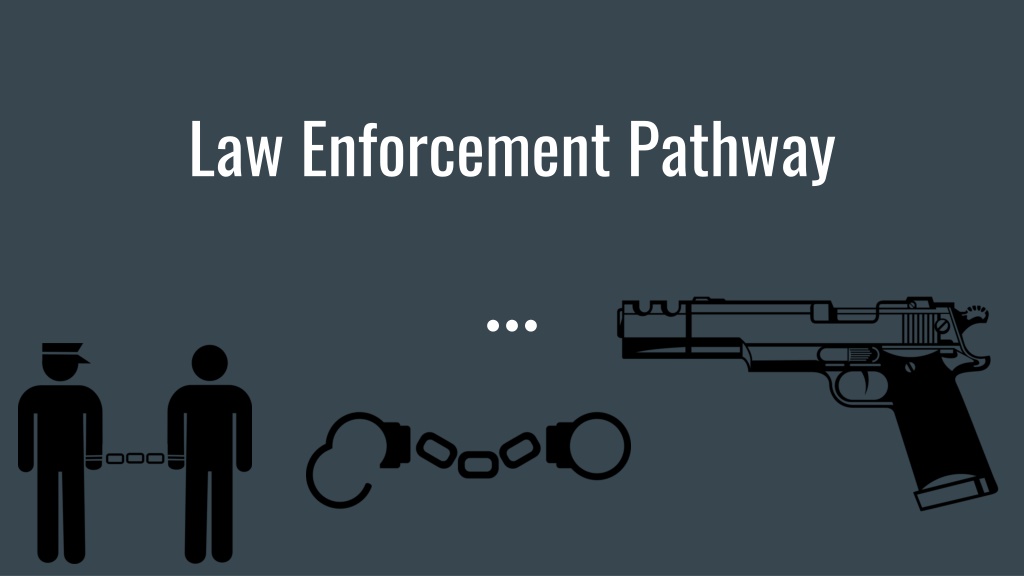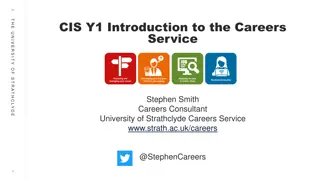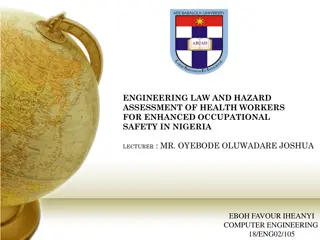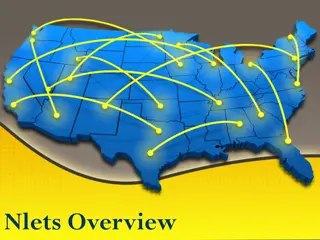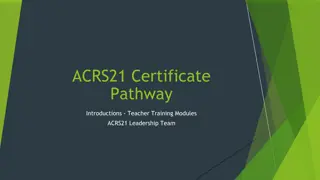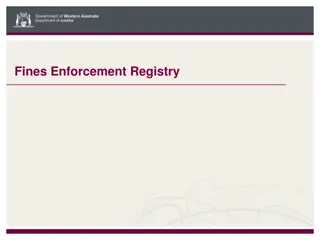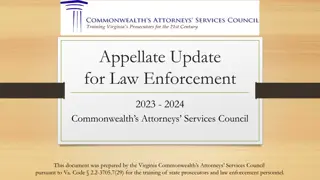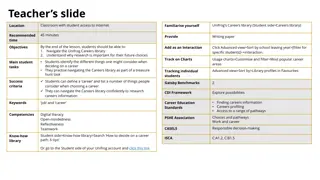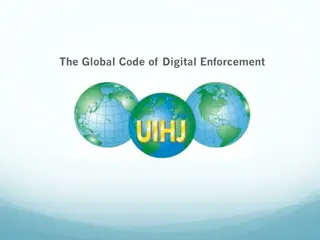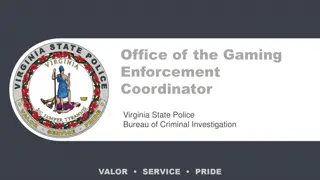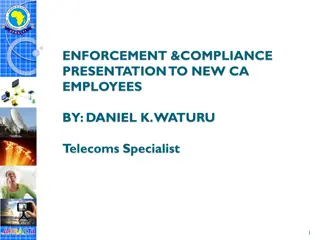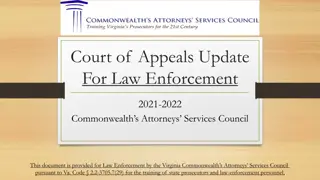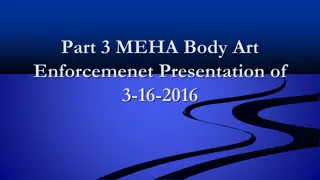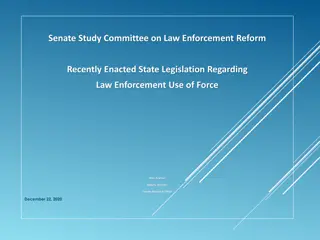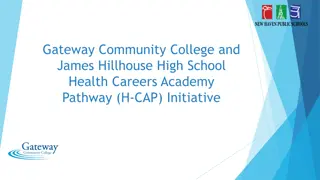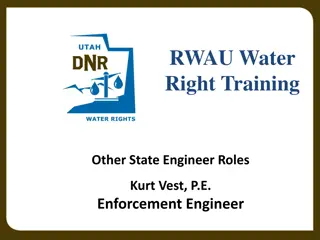Exploring Careers and Education in Law Enforcement Pathway
Discover various careers in law enforcement such as Border Patrol Agent, FBI Agent, and Police Officer. Understand the roles of individuals in enforcing laws, investigating crimes, and ensuring public safety. Learn about certifications and educational pathways for a successful career in law enforcement. Meet professionals like Justin Harper who share their experience in the field. Follow a structured curriculum covering topics like principles of law enforcement, crime scene investigation, and internships to prepare for a rewarding career in this dynamic field.
Download Presentation

Please find below an Image/Link to download the presentation.
The content on the website is provided AS IS for your information and personal use only. It may not be sold, licensed, or shared on other websites without obtaining consent from the author. Download presentation by click this link. If you encounter any issues during the download, it is possible that the publisher has removed the file from their server.
E N D
Presentation Transcript
What are some careers in Law Enforcement? Border Patrol Agent, CIA Agent, Corrections Officer, FBI Agent, Police Officer, Emergency Dispatcher, Private Detective, Crime Scene Investigator, K9 Officer, Security Guards, Probation Officer, Student Resource Officers, Criminal analyst, Blood analysis, Immigration/Customs Agent, Court Bailiff, Accident Investigator, Fraud Investigator, or State Trooper. What is Law Enforcement? The department of people who enforce laws, investigate crimes, and make arrests.
Certifications Internet-Basic Emergency Medical Services (EMS) Concepts for Chemical, Biological, Radiological, Nuclear, and Explosive (CBRNE) Events Information security for everyone Cyber ethics Employability FEMA 100C FEMA 200B FEMA 700B FEMA 800C Digital Forensics Report writing and documentation Objective jail classification APCO Active attack emergency communications Cyber law and white collar crime Texas private security bureau level 2 Terriorism awareness for emergency responders
Justin Harper Justin Canright Crystal Ziegler Teaches juniors and seniors Been in Law Enforcement since 1996 Reserve Police Officer, August 2011 to Present Blue Mound Police Department Taught at Grand Prairie High School since 2015 to present and has worked at various other high schools and middle schools prior He s currently working on his masters degree. Teaches Freshman and sophmores Grand Prairie PD for 15 years as a patrol officer and traffic officer- vehicle crimes investigator Drunk recognition expert This is her 3rd year teaching at GPHS Licenced TCOLE Instructor (Texas Commission on Law Enforcement) TCU graduate with a Bachelors of science degree in criminal justice and an minor in business Teaches Juniors and sophomores Marine Detective Prior police work Teaching at GPHS for 4 years
Throughout each year Freshman year: Principles of law enforcement Principles of law enforcement FEMA, learned history of policing, learned handcuffing, defensive tactics (pressure points), court cases, use of force Sophomore year: Law 1 Law 1 Traffic stops, handcuffing (different style), court cases, crime scene, accident, public disturbances, DWI Junior year: Law 2 and Corrections Law 2 and Corrections Certifications ! , Crime Scene (blood splatter), Crowd control, Felony traffic stops, defensive tactics (red man), simulator Senior year: Practicum (double block) Practicum (double block) Is your internship or college and scholarship applications
Internships Jail Dispatch School security And were work on expanding this list and finding more internships within the police department that students can do
